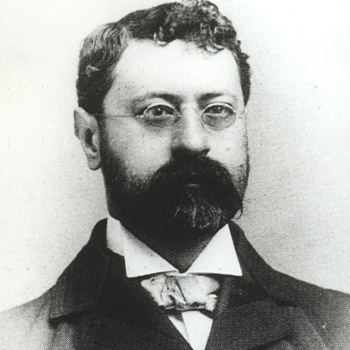Strength of character (1918-1933)
If there is a term that comprehensively defines the personality of �Don Diego,� as he was familiarly called, it is �strength of character," which he displayed in quite a few episodes of his life, from the day, in 1880, when he obtained the title of Doctor of Jurisprudence from the Universidad Nacional with an �outstanding� rating. He graduated at the same time as Nicholas Pinz�n Warlosten.

At the end of the 19th century when the «Thousand Days War was brewing, Diego Mendoza Pérez, was always beside the old radicals and supported his partys anti-war wing. This stance distanced him from liberal leader Rafael Uribe Uribe, one of the wars stalwart supporters, whom he challenged to a duel on several occasions.
With an extensive knowledge of diplomatic history and the Panama case, in 1905, was appointed by General Rafael Reyes, as Minister (Ambassador) Plenipotentiary to the United States Government, to procure the settlement of outstanding issues, after the loss of the Department. The following year, due to differences with President Reyes, he was removed from his post and declared a traitor to the country for publicizing his views on the priorities that should be established in the negotiations. For four years he went into exile and, in 1910, returned to the country after Congress vindicated him of the serious accusation.
His intellectual activity was as heterogeneous as tireless: he wrote about language and Spanish literature; published a volume on the Botanical Expedition, with new material obtained in the Botanical Garden of Madrid. Also, he worked as a journalist in numerous newspapers of his time: El Relator, La Crónica, La Revista Nacional de Colombia, El Espectador, and El Gráfico, He was the Rector of the Universidad Republicana, and organized the publication of the last volumes of the General Santander Archive.
At the Externado, he taught Private International Law and Sociology; a discipline Liberals had begun to propagate in the country in 1880, considered essential in the training of a lawyer, who should scientifically know the social reality of the professional practice. Mendoza Pérez is remembered as the author of the well-known Ensayo sobre la evolución de la propiedad en Colombia (Essay on the evolution of property in Colombia).
From the rectory of the reborn Externado, since 1918, Don Diego had to defend the institution against attempts to constrain its independence. First, he opposed that the institution be incorporated into the Universidad Libre, an attempt by liberal leader Benjamín Herrera to affiliate higher education to his political party. On another occasion, he confronted Enrique Olaya Herrera who proposed to create a large public university at the expense of a private one, such as the Externado.
Two events during this period are indicative of the Externado pioneering spirit regarding higher education. First, the creation of a University Extension Program and, subsequently, the establishment of effective student participation in the Universitys governance.

